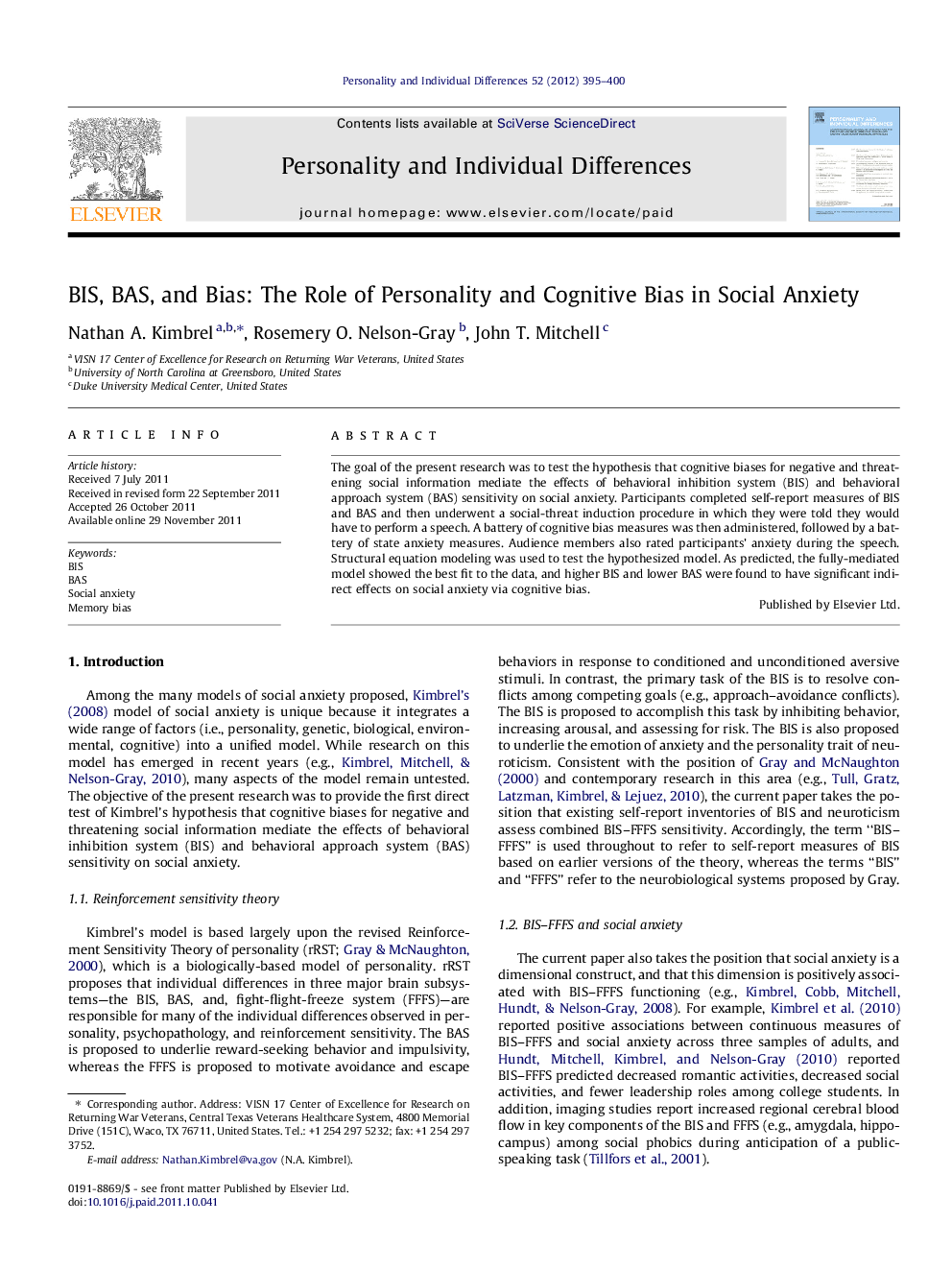| کد مقاله | کد نشریه | سال انتشار | مقاله انگلیسی | نسخه تمام متن |
|---|---|---|---|---|
| 891463 | 914043 | 2012 | 6 صفحه PDF | دانلود رایگان |

The goal of the present research was to test the hypothesis that cognitive biases for negative and threatening social information mediate the effects of behavioral inhibition system (BIS) and behavioral approach system (BAS) sensitivity on social anxiety. Participants completed self-report measures of BIS and BAS and then underwent a social-threat induction procedure in which they were told they would have to perform a speech. A battery of cognitive bias measures was then administered, followed by a battery of state anxiety measures. Audience members also rated participants’ anxiety during the speech. Structural equation modeling was used to test the hypothesized model. As predicted, the fully-mediated model showed the best fit to the data, and higher BIS and lower BAS were found to have significant indirect effects on social anxiety via cognitive bias.
► Participants completed measures of BIS, BAS, and cognitive bias.
► Social anxiety was assessed via self-report and audience ratings.
► As expected, BIS was strongly associated with cognitive bias.
► Cognitive biases mediated the effects of both BIS and BAS on social anxiety.
► The findings provide support for Kimbrel’s (2008) model of social anxiety.
Journal: Personality and Individual Differences - Volume 52, Issue 3, February 2012, Pages 395–400